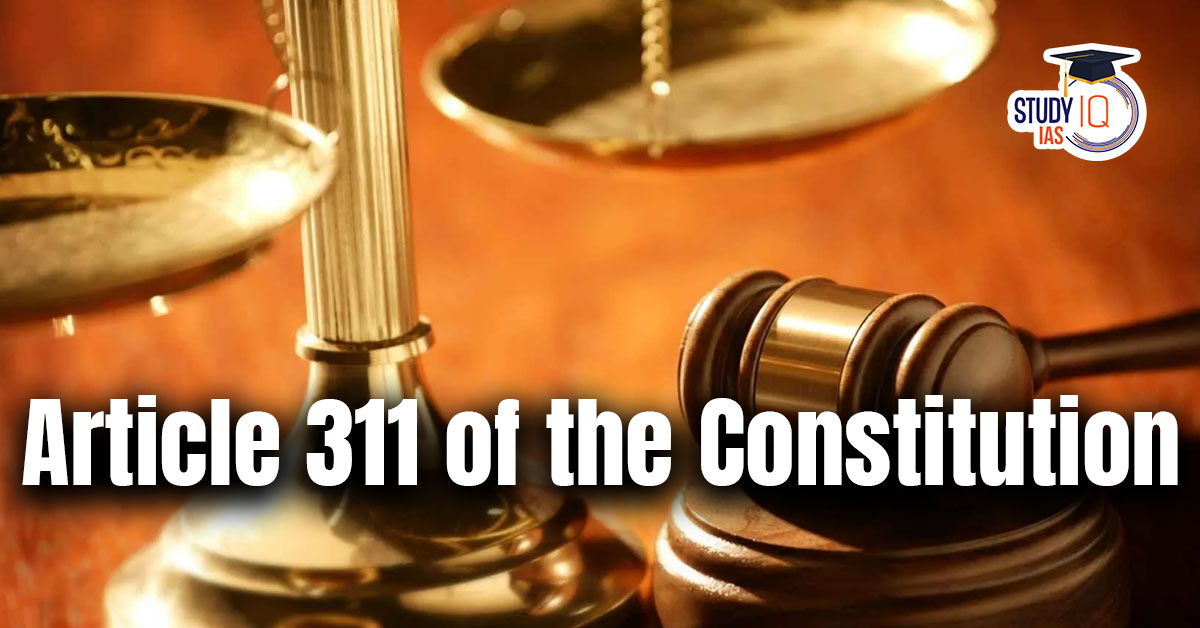Context: In a recent judgement the SC bench has clarified that Article 311(1) does not mandate appointing authority’s approval to initiate disciplinary proceedings against a state employee. For dismissal, the appointing authority’s approval will be required.
Article 311 of Indian Constitution
Article 311 of Indian Constitution provides safeguards to civil servants against arbitrary dismissal, removal or demotion by the government. It includes civil posts under both Union and State.
- Article 311 (1): Members of Civil service cannot be dismissed or removed by any authority subordinate to the appointing authority.
- Article 311 (2): Members of Civil Service can be dismissed, removed or reduced in rank after giving him/her a reasonable opportunity to be heard after an inquiry.
Key Provisions of Article 311:
This applies to individuals holding civil posts under the State or Union Governments (not to the armed forces).
Protection Clauses
- No dismissal or removal by a subordinate authority to that which appointed the employee.
- No dismissal, removal, or reduction in rank without inquiry where the employee is given notice of charges and an opportunity to be heard.
Exceptions (Clause 2 of Article 311):
Inquiry may be dispensed with:
- If the individual has been found guilty on a criminal offence.
- Where it is not reasonably practicable to conduct an inquiry.
- If the President or Governor is of the opinion that conducting such an inquiry is contrary to the interest of state security.


 Governor's Assent to State Laws and Bill...
Governor's Assent to State Laws and Bill...
 Strengthening Enforcement of Judicial Or...
Strengthening Enforcement of Judicial Or...
 Gradual Transformation of the Ministry o...
Gradual Transformation of the Ministry o...





















